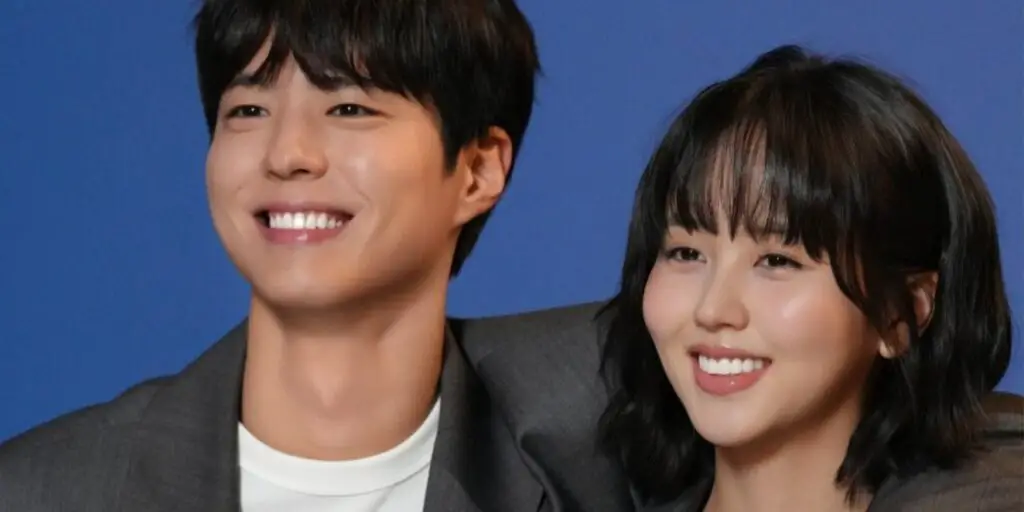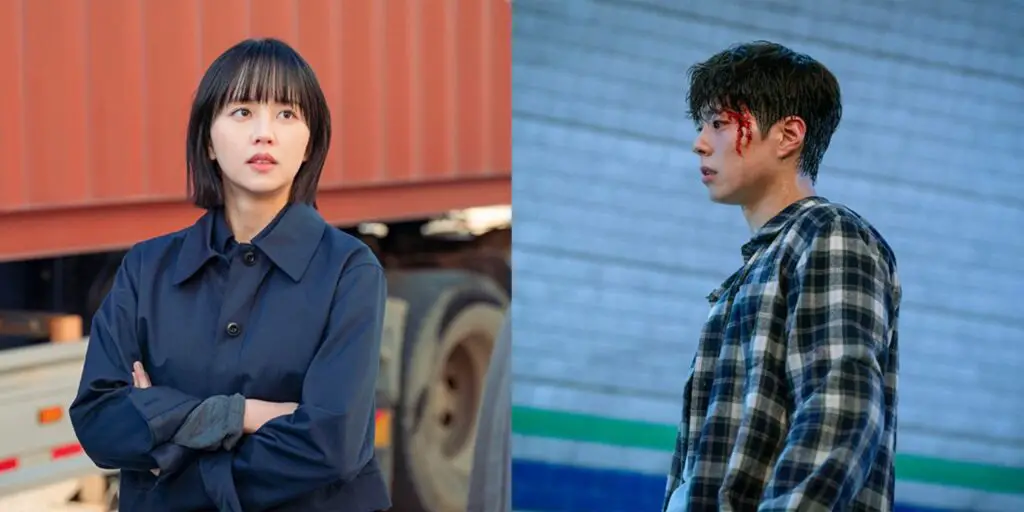In Head Over Heels Episode 3 aired on June 30, 2025, on tvN. It was heavy and emotional. It centered on Park Sung-ah, played by Jo Yi-hyun, as she tried to protect Bae Gyeon-woo, played by Choo Young-woo, from taking his own life. This wasn’t just a love story anymore. It became about life, death, and the hard fight in between.
Park Sung-ah went to Shin Mother (Kim Mi-kyung) and asked for help. She had seen signs that Gyeon-woo wanted to die. Shin Mother, who has the power to see fate, confirmed it. She told Sung-ah, “He has a suicide spirit.” But saving him wouldn’t be easy. “He has to want to live,” she said. That one line changed everything.
The episode moved into darker, more real territory. Gyeon-woo was dealing with grief. He had just lost his grandmother, Oh Ok-soon. As the chief mourner, he was expected to lead the funeral. But even here, his family showed no kindness. One relative demanded he hand over the mourning band. They treated him like a burden. They even blamed him for the family losing money. Sung-ah stood up for him, calling out their cruelty. She questioned why they were chasing away the one person who had cared for the deceased.
That moment wasn’t just about standing up to rude family. It showed how lonely Gyeon-woo had become. No one supported him. Except Sung-ah. And she wasn’t just fighting people. She was fighting ghosts. Real ones.
A Shaman, A Ghost, and the Start of a Deep Bond
When one relative mocked her for being a shaman, Sung-ah didn’t back down. She looked directly at a ghost and said, “Don’t touch him. He’s mine.” She wasn’t saying this out of possession. Sung-ah was trying to protect him. She even warned the ghost, saying it had no chance against her. Her words showed just how determined she was to keep Gyeon-woo alive.
Later, Gyeon-woo broke down. He cried, feeling like he had let his grandmother down. It was hard to watch. He was holding too much pain. Sung-ah begged the Queen Mother and Shin Mother for help again. She said this wasn’t about fate—it was about love. She was ready to do anything. That’s when she got the Anti-Male Secretary, a strange book with powers. But even magic wasn’t enough.
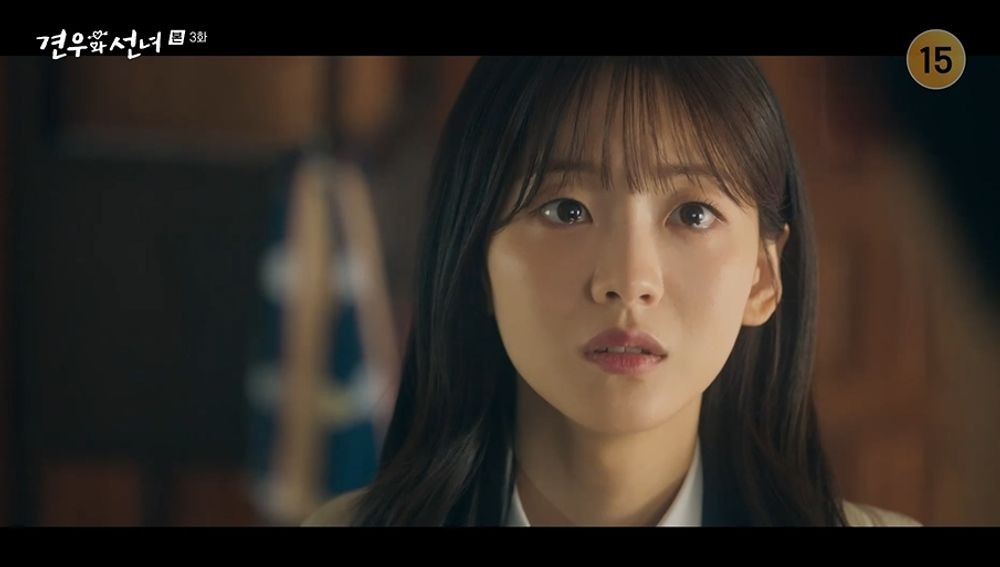
Shin Mother told her something important: human touch matters. Not spells. Not chants. A human talisman—someone who truly cares—can fight darkness better than any paper charm. Shin Mother’s advice aligns with Korean shamanic (muism) beliefs, where human connection is seen as a potent force against evil spirits. This contrasts with Western horror tropes, where magic alone wins battles. That idea turned the story in a new direction. Not fantasy. Not drama. Just raw emotion and real connection.
Holding On: Finding Moments of Life in the Dark
Sung-ah took that advice seriously. She decided she would stay close to Gyeon-woo. She would try skinship, not out of romance, but out of care. Sung-ah was clear with Ji-ho (Cha Kang-yoon) too. “I’m not doing this for myself,” she said. “I just want him to live.”
She went to Gyeon-woo’s house again. Sung-ah brought him food. She saw the ghost near him again. Sung-ah told him, “Don’t think like that. Your grandmother would be sad.” That line hit hard. Sometimes people forget that grief twists thoughts. It makes everything cloudy. Sung-ah knew that and tried to reach the part of him that still wanted to live.
Then came a quiet moment. Gyeon-woo looked at a photo of his grandmother and smiled. It was small, but it mattered. The suicide ghost backed off. Something had changed. It wasn’t gone yet, but it was fading.
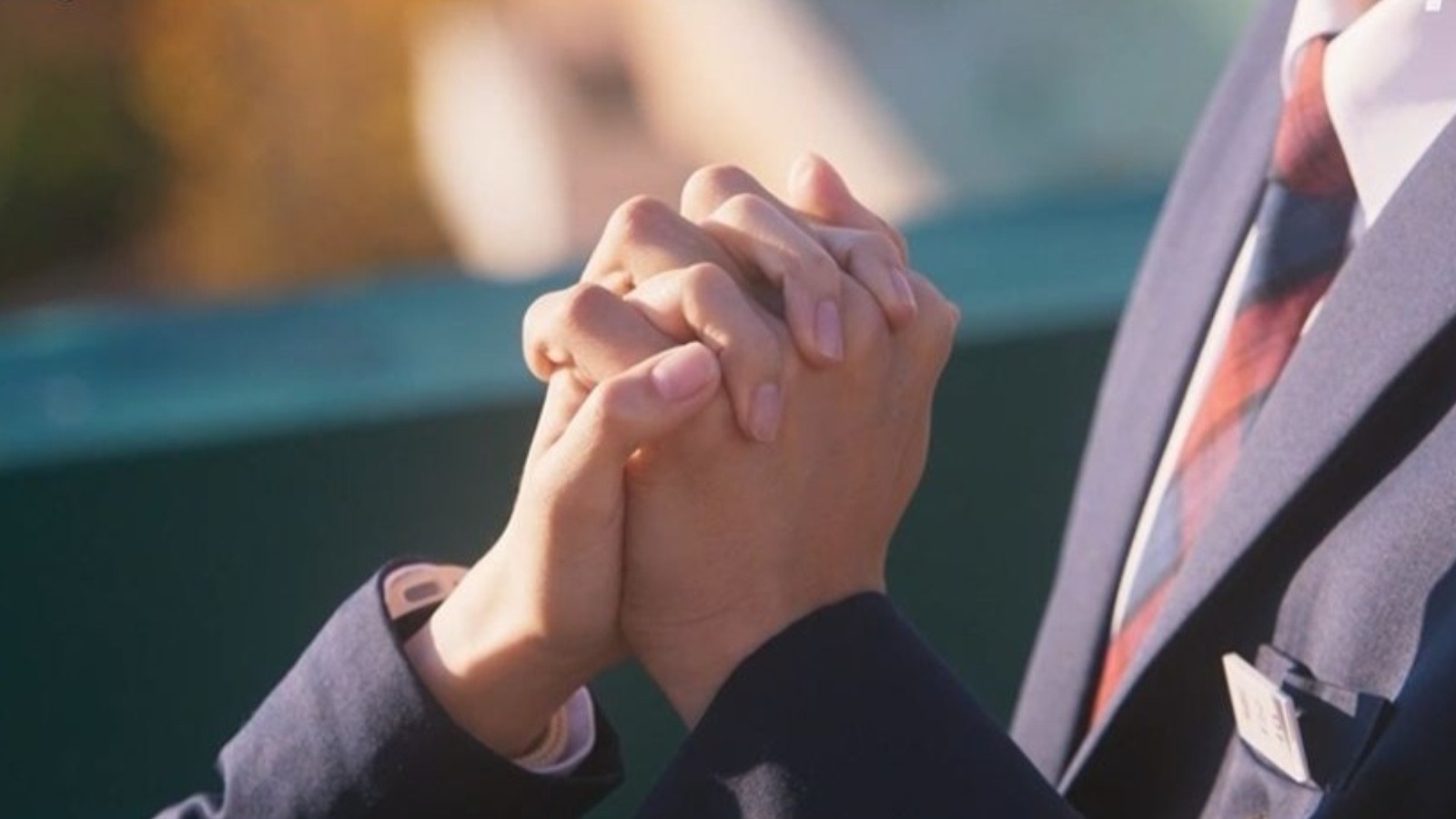
Later, Gyeon-woo questioned Sung-ah. He asked why she kept following him. “Don’t you think it’s too much?” he said. Sung-ah joked back, saying it was just a coincidence. But underneath that joke was her fear—if she left him alone, he might not survive. They talked more. She asked him about archery. He said it helped him fight the wind. That line—“I can defeat it with one arrow”—was more than about sports. It was his way of surviving. It showed he still had some fight left.
Toward the end, Sung-ah patted his head. She told him he was strong. She said he protected others when it should be the other way around. “That’s why I want to treat you well,” she said. He asked if it was sympathy. She said no—it was friendship. In the final moments, the ghost disappeared. Gyeon-woo smiled. Sung-ah asked for a high five. He gave her one and didn’t let go. Something new had started. It wasn’t a sudden love story. It was the start of healing.
Key Symbolism Breakdown
-
Suicide Spirit: Represents the isolating weight of untreated depression.
-
Mourning Band Conflict: Mirrors real-world family greed during bereavement.
-
“He’s Mine”: Sung-ah’s declaration symbolizes claiming agency for someone who’s lost theirs.
Final Thoughts on What This Episode Really Showed
Head Over Heels Episode 3 wasn’t just about ghosts or romance. It was about fighting despair. It showed how grief, when left alone, can turn into something dangerous. But it also showed how care, warmth, and presence can change someone’s path.
Jo Yi-hyun brought quiet strength to her role. Her character was never perfect. She made mistakes. But she never gave up. Choo Young-woo played Gyeon-woo with care and honesty. His pain felt real. His struggle wasn’t dramatized—it was relatable.
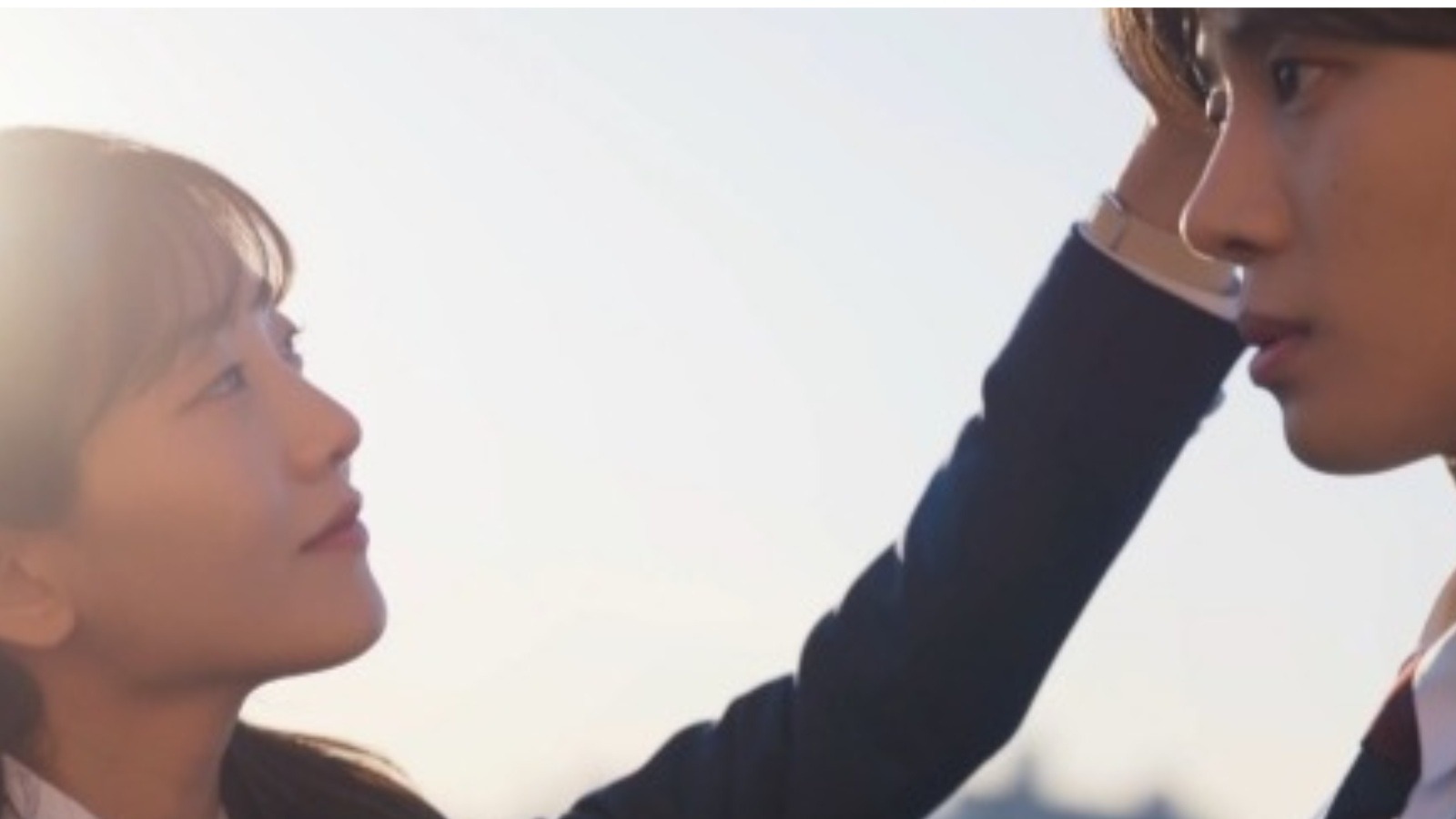
One thing that stood out was how the show mixed the supernatural with real human problems. A suicide ghost may be a fantasy, but the feelings behind it are not. Many viewers might connect with the idea of wanting someone to stay alive, even if they can’t see it themselves. This drama may look light from the outside, but it’s touching deep themes now. Love isn’t always about romance. Sometimes it’s just showing up. Holding someone’s hand. Making them laugh again. And letting them know they matter.
Do supernatural elements make heavy themes easier to explore? How does the show balance fantasy with real-world issues? Share your thoughts below!
For New Viewers:
Catch up: Prime Video
Related Themes: Hotel del Luna (grief), It’s Okay to Not Be Okay (trauma bonds).
Kavita Mishra is a dynamic writer and passionate Korean entertainment enthusiast, combining her love for K-pop and K-drama with a flair for storytelling. With a keen eye for the latest trends, Kavita crafts articles that capture the pulse of K-pop idols, chart-topping hits, and the most buzz-worthy dramas taking over screens worldwide.
How Does this Article Make You Feel?

